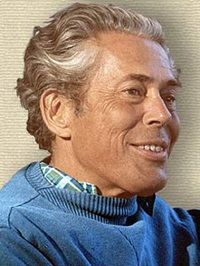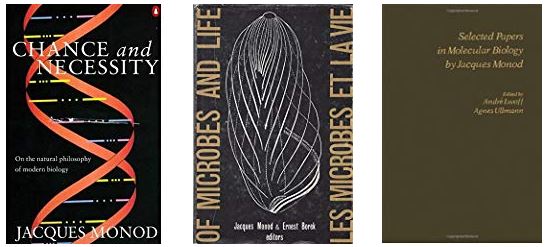|
TRANSLATE THIS ARTICLE
Integral World: Exploring Theories of Everything
An independent forum for a critical discussion of the integral philosophy of Ken Wilber
 David Christopher Lane, Ph.D.
Professor of Philosophy, Mt. San Antonio College Lecturer in Religious Studies, California State University, Long Beach Author of Exposing Cults: When the Skeptical Mind Confronts the Mystical (New York and London: Garland Publishers, 1994) and The Radhasoami Tradition: A Critical History of Guru Succession (New York and London: Garland Publishers, 1992). David Christopher Lane, Ph.D.
Professor of Philosophy, Mt. San Antonio College Lecturer in Religious Studies, California State University, Long Beach Author of Exposing Cults: When the Skeptical Mind Confronts the Mystical (New York and London: Garland Publishers, 1994) and The Radhasoami Tradition: A Critical History of Guru Succession (New York and London: Garland Publishers, 1992).If there's a singular topic Integral students need to be educated on it is evolutionary theory, given their frequent but uninformed use of the term "evolution". These short biographical chapters about evolutionary theorists have been written by different philosophy students of professor David Christopher Lane. (FV)
THE EVOLUTIONARY SCIENTISTS
Glimpses into the Life and Work of Great Thinkers in Evolutionary Biology
Coyne|
Crick|
Darwin|
Dawkins|
Diamond|
Dobzhansky|
Eldridge|
Gould|
Haldane|
Hamilton |
Lamarck|
Lovelock|
Mayr|
Mendel|
Monod|
Spencer|
Trivers |
Wallace |
Weismann |
Williams |
E.O. Wilson
Jacques MonodSophie Wang
When watching wildlife documentaries, people are easily impressed by the diversity of species on Earth. From rainforests to deserts, from the deep ocean to snowy plains, different types of creatures are so vivid, so prosperous, and so lively. At that time, a deeper voice may rise from an individual's inner mind, asking, “what is the real meaning of the prosperity of life? What is the essence of life?” “Is life a secret held by gods, or is it hiding in molecular energetic transformations which are happening every second?” Around sixty years ago, Jacques Monod provided his own answers after he had made new findings in genetics. Jacques Monod (February 9, 1910–May 31, 1976) is a famous French biochemist who won the Nobel Prize in Physiology or Medicine in 1965 (along with François Jacob and André Lwoff), for discoveries “concerning genetic control of enzyme and virus synthesis.”  Jacques Monod Monod's contribution mainly focuses on studying the genetic control of enzymes. In the research of the controlling process of E. coli's lactose metabolism, Monod and F. Jacob found the difference between structural genes and regulatory genes. With a kind of special enzymes called “operons” in cells' cytoplasm, regulatory genes could operate a repressor to bound with an operator, so that it can regulate lactose metabolism by controlling operons. This discovery not only reflects the relationship between nucleic acids and proteins, but also shows the relationship between an organism and its surrounding environment. In further research, Monod also suggested the existence of messenger RNA molecules, which are a kind of RNA that play an important role in linking the information encoded in DNA and proteins. For the contribution in molecular genetics, he is widely regarded as one of the founders of molecular biology. Monod and Jacob's discoveries show that cells with the same kind of genetic materials can synthesize diverse kinds of proteins and then can differentiate into different kinds of cells. After giving lectures in Pomona College, he gradually developed his concern on the philosophical meaning of properties of identity and difference that occurs in genetic materials in molecular biology. Based on his biochemical study, Monod collected his philosophical thoughts together and published them into his book Chance and Necessity in 1970. In his text, he interprets the philosophical implications of modern biology and suggests that life is the result of natural processes by "pure chance". In Chance and Necessity, he separates his theories into four parts, which are the basic properties of life, evolution of organisms, the future of human evolution, and the possibilities of humans' future world. Based on his findings in genetic molecular biology, Monod brings out three basic properties of life: teleonomy, autonomous morphogenesis (self-constructing), and immutability of genetic information. He concludes that the secret of life is best understand as the result of randomness. In his book Chance and Necessity, Monod states that “living beings are endowed with a purpose or a project,” which means that living beings are distinguished from other systems or structures in the universe by the property of teleonomy. Living beings have their own purposes of existence and reproduction, so they need to develop relative biological systems and mechanisms to help themselves achieve their goals. In Monod's study of molecular biology, particular kinds of proteins are responsible for synthesizing organics, controlling cellular operations, and building genetic structures. On the molecular level, these proteins are operators and implementers of organisms' subjective purpose. As Monod suggests, “(Proteins') stereospecificity and cybernetic network guarantees the functional coherence of the intercellular chemical machinery”. Because of proteins' operations, different cellular parts can be organized together for achieving organisms' living goals. Furthermore, autonomous morphogenesis in Monod's theories, which means living beings' ability for self-constructing, reflects the complete randomness in organisms' phenotypes. Monod suggests that biological structures and purposeful behaviors of all creatures are determined by different proteins' orders, which are referred to different genotypes. However, as the determining factor of life, genotypes are totally based on random and chance. In his opinion, “the secret of life is just behind the chemical structure of proteins,” which means random structures of proteins can cause tons of different phenotypes as demonstrated by the variety of living beings. In Monod's philosophical system, the real meaning of life is randomness, and the miracle of life is the consequence of randomness and natural selection. Furthermore, Monod suggests that immutability is the third property of life, which stands for the continuous intergenerational transmission of same genetic codes. In science and philosophy, there are always existing variables and constants. Monod believes that the basic strategy of science is to continuously explore reliable constants (invariants) in infinitive differences. Infinitive differences are superficial phenomena in the universe, and science's goal is to find out the most basic law of the universe. In Monod's book, he suggests that DNA codes in the cores of cells are constants in molecular biology, which represents the immutability of life. Monod believes that immutability, as the basic characteristic of living beings, determines that all living beings' bodies are strongly conservative systems, which means they prevent any reformation or revolution in their structures. The reason why evaluation could still happen is because biological mechanisms cannot prevent randomness from happening. Just like any object in the universe cannot avoid quantum perturbation, living beings also cannot avoid randomness. In this case, the randomness that occurs in organisms is the gene differentiation. Because of the random change that happens in nucleotides' locations and orders, DNA differentiation invariably happens and causes variance in phenotypes. Because humans generally lack a biological understanding about the origin of genetic codes, they still don't properly appreciate how genetics control life itself. Also, because we lack an intimate knowledge about our own central nervous system, we still cannot explain the age-old concept of souls or spirits in precise biological ways. Because of our ignorance on all things biological and technological, Monod predicts the future of humankind is precarious and unsure. In Monod's philosophical system, all previous and outdated value standards should be abandoned. Monod wants out ethics based on logic and rationality, not religious superstition. Based on these new ethical principles, Monod believes that it would usher in “A kingdom that [is] beyond [mere] material concepts, a kingdom of knowledge and creativity” Monod has a number of critics and has generated a fair amount of controversy, particularly three central areas: the theory of molecular purpose, exaggerations about cells' functions, and the absolute immutability of DNA codes. Monod suggests that cells and proteins' molecules have their subjective purpose and even “dream” for achieving certain living goals; however, later studies indicate that an organism' living purpose is actually a biological adaptation. Moreover, cellular proteins' functional changes are because of environmental changes. In this case, some scientists think that Monod has reversed the cause and the effect of organisms' living purpose. Some scientists also think Monod has exaggerated the function of cells, for he regards cells' structures as perfect designs. Recent research shows that humans' DNA codes can be changed by excessive radiation. However, Monod's theories of life and evolution, which are combined with his biological research, still has had a significant influence among certain philosophers and scientists. In any case, Monod has provided us with a radically new purview about the meaning of life and our understanding of genetics. Further Reading1. Chance and Necessity: Essay on the Natural Philosophy of Modern Biology, 1970. 2. Selected Papers of Molecular Biology, Academic Press Inc (1979-01-01) (1656) 3. Of Microbes and Life, Columbia University Press (1971)
 MSAC Philosophy Group
The theory of evolution has a long history. However, it was not until Charles Darwin and Alfred Russel Wallace discovered that the wide variety of species we presently see were largely the result of natural selection did evolutionary studies have a solid, scientific basis. In the past one hundred and sixty years, a number of eminent biologists have contributed to our understanding of how complex life forms emerged from simpler, more rudimentary ones.
Comment Form is loading comments...
|